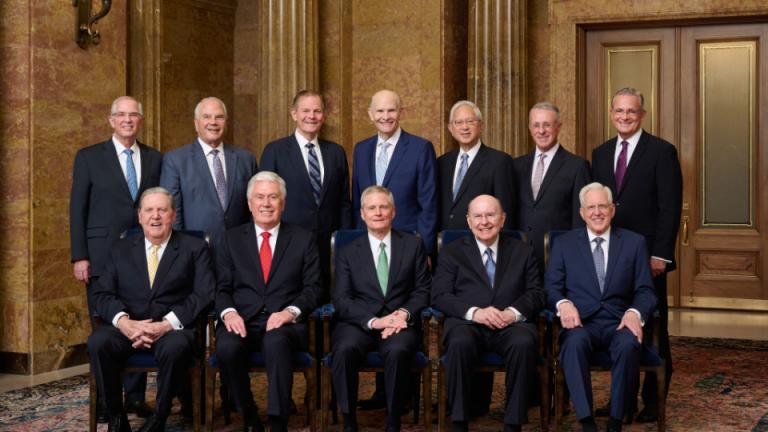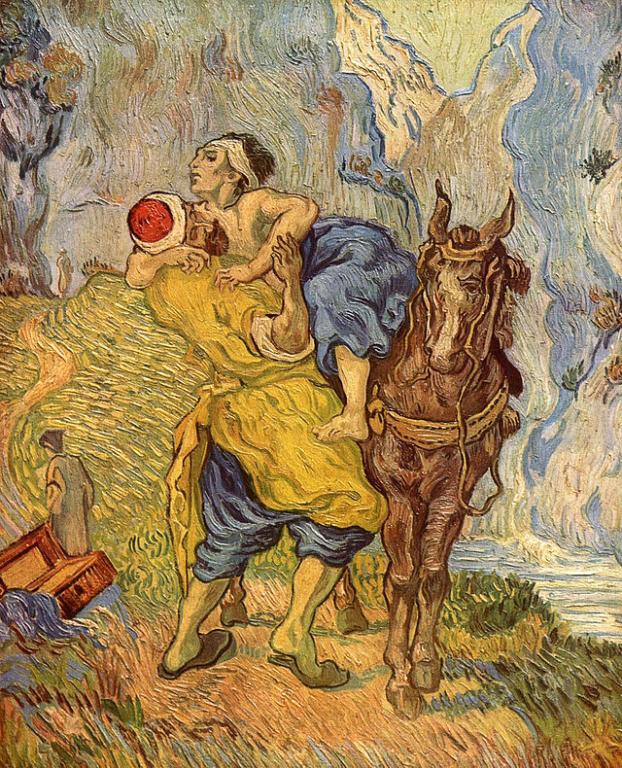
I have a number of linguistic pet peeves. Not all of them are related to Latter-day Saint usage — e.g., “she advocates for x” rather than, simply, the perfectly adequate “she advocates x” is not — but some of them are. Here is one of them that is:
Back in the General Conference of April 2018, I was very pleased to hear President Dallin H. Oaks ask us not to use the word priesthood to refer to the body of men who have been ordained. And yet I still hear it.
This has always bothered me. I’ve never liked hearing that “The priesthood will be gathering for basketball on Thursday night,” or “The priesthood will be cooking pancakes in the park on the Fourth of July.”
I realize, of course, that this reflects a legitimate English usage — e.g., “In pharaonic Egypt, the priesthood had great power and often owned enormous tracts of land.”
But, for Latter-day Saints, an important doctrinal point is at stake, and clarity is important.
In German, there are two distinct terms that can be translated as priesthood: Priesterschaft and Priestertum. The first refers to a group of priests (or, in the Latter-day Saint context, to a group of boys and/or men holding the Aaronic and/or Melchizedek priesthood). The second refers to “priesthood” in the sense of an authority that can be transmitted to or conferred upon someone, but it does not refer to any person or group of persons that receives such authority. It seems to me a useful distinction, between two things that need to be kept distinct.
In English, we should never confuse Priesterschaft with Priestertum. Priesthood is an authority that may or may not have been conferred upon a person. We should never come within light years of confusing it with simply being male. When men gather to play softball or to flip pancakes or to move a piano or fix a widow’s screen door, they may well even be acting meritoriously and in accordance with principles of priesthood service or quorum fellowship, but they’re not acting, strictly speaking, as priests. They aren’t the priesthood. They are bearers of it.
Here endeth the lesson. I step down from the pulpit.

I finally had a chance last night to watch The Good Samaritan, the 45-minute film written and directed by James Dalrymple and produced by Howard Collett that won an award a week or two ago at the annual Zions Indie Film Fest. I liked it. I thought that they did a really good job with it, and I was pleased by the two lead performances — both the man who fell among thieves and the Samaritan himself, who was played by Dave Martinez (who excellently portrayed Thomas Sharp in the Interpreter Foundation’s 2024 theatrical film Six Days in August).
I don’t know when The Good Samaritan will be publicly released, or where or how. But I hope that it eventually finds the audience that it deserves.
And, speaking of Thomas Sharp [aka Dave Martinez] and Six Days in August, that film can be streamed via multiple platforms. (See here.) And have you availed yourself of the opportunities that are on offer here?

(Wikimedia Commons public domain image)
I’ve stood east of Jerusalem on the Mount of Olives and watched Ramadan prayer taking place on the Temple Mount directly to the west. It’s deeply impressive, for one thing, to see so many people move in unison. (In that regard, meaning no disrespect, it’s rather like watching “The Wave” in a football stadium.). Anyway, here’s an article — sadly, far too much connected with politics — about the current celebration of Ramadan in the Holy City: “90,000 Muslims ascend Temple Mount for Ramadan prayers: The Israel Police deployed around 3,000 personnel, including Border Police officers, in Jerusalem for the first Friday of Ramadan.”
While on the topic: I was happy to see this article: “What Latter-day Saints Can Learn from Ramadan.”

I found this article in the Wall Street Journal extraordinarily interesting. Perhaps you will be able to access it, as well: “Why Are Girls Less Likely to Become Scientists? Closing the gender gap in STEM jobs has proved difficult, perhaps because it has more to do with the priorities of men and women than with sexism.” It’s probably a good idea that the author is based in Australia. That way he has at least a slight chance of survival.
In the same connection, more or less: Some writers and media personalities like to characterize the Church of Jesus Christ of Latter-day Saints as fundamentally and profoundly misogynistic. For an alternative point of view, though, here’s an article from the Church itself: “‘You Bring Light’: How the Church of Jesus Christ Celebrates Women”

And here, as part of my continuing effort to share as much bad news as I can from the Christopher Hitchens Memorial “How Religion Poisons Everything” File™, is an article in which a woman (no less!) joins in on the lie that religion isn’t overwhelmingly a force for evil in our otherwise sound and healthy world: “President Porter Says, ‘Humanitarian Work Is a Joyful Part of Peacemaking: Primary General President ministers in Qatar, United Arab Emirates, and Jordan”
Meanwhile, this too obviously comes from the Hitchens File: “Supporting Marriage in Lubumbashi, Democratic Republic of Congo: “Marriage is ordained of God”, 81 couples achieve their goal of civil marriage”
And, of course, this enormity from the Hitchens File should never be forgiven: “Light the World Giving Machines raised over $16 million for charity in 2024: Big red vending machines for good have now raised nearly $50 million in 8 years, according to The Church of Jesus Christ of Latter-day Saints”
Acts 10:38 says of Jesus that he “went about doing good.” Yeah. Right. Sure he did. Religion poisons everything.













